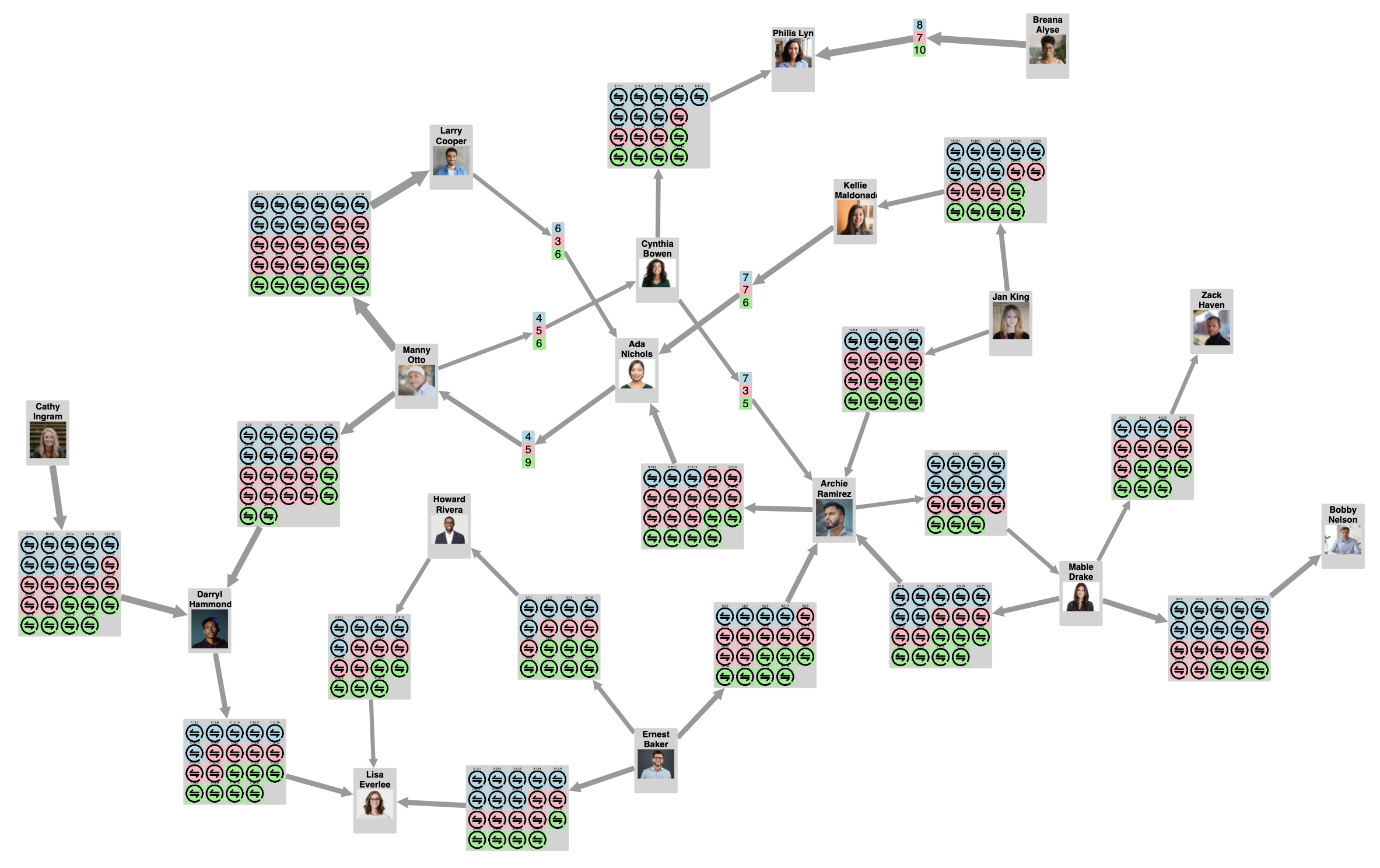cytoscape-transaction-layout
Description
This is a specialized layout for graphs with large numbers of transactions between people. The layout aggregates transactions into sorted clusters and positions nodes using a forced directed layout. Functionality is provided to toggle clusters between a simplified and detailed view.
Dependencies
- cytoscape: ^3.19.0
- cytoscape-fcose: 2.0.0
Usage instructions
Download the library:
- via npm:
npm install cytoscape-transaction-layout - via direct download in the repository
ES import:
import cytoscape from 'cytoscape';
import { register as transactionLayout } from 'cytoscape-transaction-layout';
cytoscape.use(transactionLayout);CommonJS:
let cytoscape = require('cytoscape');
let layout = require('transactionLayout');
cytoscape.use(layout);API
// Default layout options listed
let options = {
name: 'transaction',
// Called when compound node is collapsed or expanded respectively
// Useful for applying style changes to compound nodes
onCollapseCompoundNode: (compoundNode) => {},
onExpandCompoundNode: (compoundNode) => {},
// Function to determine the edge width based on the number transactions for an edge
edgeWidthFunc: (transactionCount) => {
return transactionCount;
},
// Compare to function to determine the order of transactions within a compound node
transactionsCompareTo: (nodeA, nodeB) => {
return nodeA.data('weight') - nodeB.data('weight');
},
// Cytoscape selector passed to cy.nodes() to determine parent nodes
parentSelector: '[type = "person"]',
// Cytoscape selector passed to cy.nodes() to determine transaction nodes
transactionSelector: '[type = "transaction"]',
// fcose layout options, default options listed
// see https://github.com/iVis-at-Bilkent/cytoscape.js-fcose for more information
forceLayoutOptions: {
name: 'fcose',
quality: 'proof',
animate: false,
},
};
// An object containing layout functions is returned
let layout = cy.layout(options).run();
// Runs the focse layout
// Accepts an object whose values update the values in options.forceLayoutOptions
layout.runForceLayout({});
// Toggles a compound between collapsed and expanded
// Accepts either a transaction node or a transaction's parent node
layout.toggleCompoundNode(node);Graph Data Format
- Each parent node can have any number of directed edges entering or leaving the node
- Each transaction node must have exactly one directed edge entering and one directed edge leaving the node
- Ideally the graph should be completely connected
- The graph layout will automatically convert this format to compound nodes with transactions as children
Example Demo
- An example demo is found in
./example - Install the dependencies using
npmor another package manager if applicable - Start the local dev server using
npm run startin./example - Access
localhost:8080to view the demo
